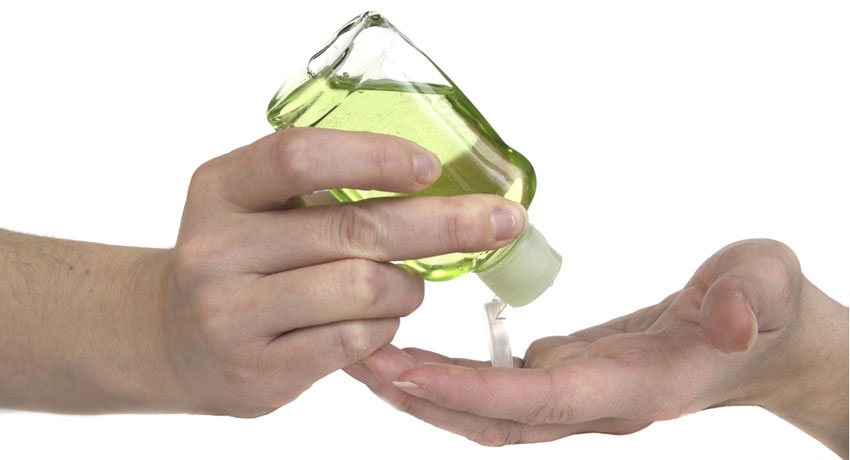Ask The Expert: Do Hand Sanitizers Work?

Hand sanitizer image via shutterstock
As the cold and flu season begins, your morning commute on the T will soon become a trolley car full of potential diseases. As a precaution, some people carry around bottles of alcohol-based hand sanitizer to rid themselves of those pesky germs once you’ve disembarked. But are hand sanitizers actually killing the germs you think they are? We turned to Dr. Deborah Yokoe, the medical director of the Infection Control Department at Brigham and Women’s Hospital for some answers.
Hand sanitizers are marketed as able to kill 99.9 percent of germs on your hands. Are they really that effective?
Alcohol-based hand sanitizers are very effective at killing most germs, including most bacteria and viruses. Soap and water should be used for hand washing if hands are visibly dirty, because the mechanical action of soap and water is needed to clean dirt off your hands. There are some types of organisms that aren’t killed by alcohol. For example, the spores of the Clostridium difficile bacteria—also known as C. diff, a bacteria can cause a diarrheal illness and inflammation of the colon—and some other viruses.
What would you recommend to people to help them stop the spread of germs during this cold and flu season?
Hand hygiene is the most important way we can prevent the spread of infection. Good hand hygiene can be accomplished by using an alcohol-based hand sanitizer, or soap and water. Clean hands protect everyone—patients, visitors, and staff at hospitals like Brigham and Women’s. Anyone who is sick should try to limit contact with others as much as possible to avoid spreading illness to others. Cover your nose and mouth with a tissue if you cough or sneeze. Importantly, getting an influenza vaccine every year to help protect you from getting influenza.
Are hand sanitizers safe?
Hand sanitizers are safe. In a setting like a hospital, where staff need to clean their hands many times a day, using an alcohol-based hand sanitizer as the primary hand hygiene agent makes sense since these products are very effective and quick-acting. There are specific situations (like taking care of a patient with C. diff infection) where we specify that soap and water should be used for hand hygiene. When soap and water are not available, alcohol-based hand sanitizer may be used to help stop the spread of infection.
How effective are things like disinfecting wipes for surfaces? People often use those for killing germs on keyboards and door handles, but do they effectively kill the germs there?
Surfaces, especially high-touch surfaces like keyboards or door handles, can carry bacteria and other germs. Cleaning these surfaces with disinfectant wipes can reduce the numbers of these organisms. But cleaning surfaces does not eliminate the need to clean hands.


